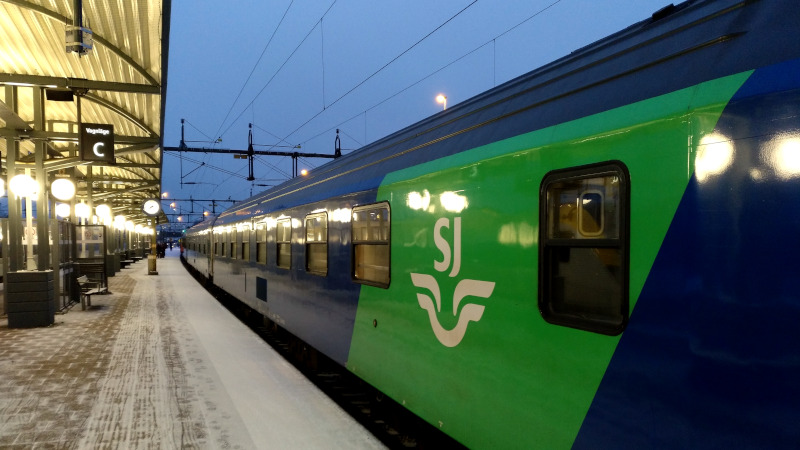Just a fortnight ago, the French SNCF announced the end of the Berlin/Vienna and Paris connection with the timetable change in December, followed yesterday by the news that another connection will be discontinued at the end of August 2026: the Swedish SJ’s year-round night train between Berlin/Hamburg and Malmö/Stockholm.
Both connections received a subsidy for the non-German part of the route. The subsidy for the only international night train connection to France to date was only planned as start-up funding. Continued operation failed mainly due to the fact that the train would have to run every two days with double the length of carriages in order to operate more economically, but the Paris Gare de l’Est does not have the capacity for this. The French government, on the other hand, wants daily operation, which requires cost-intensive shunting work that cannot be financed without subsidies.
In the case of the night train connection to Stockholm, on the other hand, it was clear that operation in the winter months would require permanent financial support. For competitive reasons, however, this was only provided as long as the night train operated by the private provider Snälltåget, which also runs on this route in the summer months, did not operate. As Snälltåget expanded its service due to increased demand, the subsidy amount for the night train operated by the Swedish state railway SJ in cooperation with RDC Germany was also reduced. “The current Swedish government’s decision not to continue the four-year contract signed by the previous government is not due to a lack of economic viability, but for political reasons. It is not the only rail project that the current centre-right coalition has stopped,” says Ellie Cijvat from Back-on-Track Sweden.
Juri Maier, Chairman of Back-on-Track Germany, explains: ‘Under current conditions, night trains in Germany operate just below the economic viability threshold and therefore require government subsidies here and there. Only our neighbouring countries are currently paying for this, which is not a sustainable situation. It’s not a good situation for passengers either: as if it wasn’t enough that train operations are dependent on roadworks, political moods can change at any time.”
Back-on-Track Sweden is therefore calling on Transport Minister Carlson to extend the financing of operations in the winter months or to retender independently of the service.
Back-on-Track Germany is calling on Transport Minister Schnieder to reduce the track access charges for night trains, which are high by European standards, to marginal costs and to abolish VAT for international tickets, as is the case for air travel – two harmonisation measures that have already been called for by the EU. These would safeguard existing services and make new connections possible.

Pingback: Noćni vlakovi na rubu isplativosti: Politika i troškovi zatvaraju međunarodne rute - Prijevoz.net
Comments are closed.